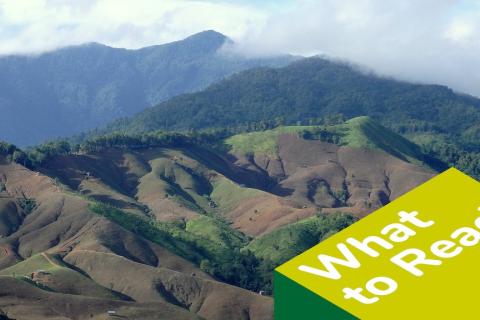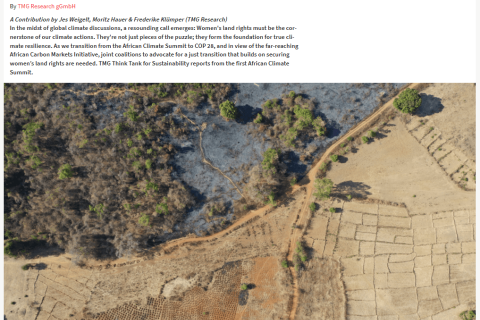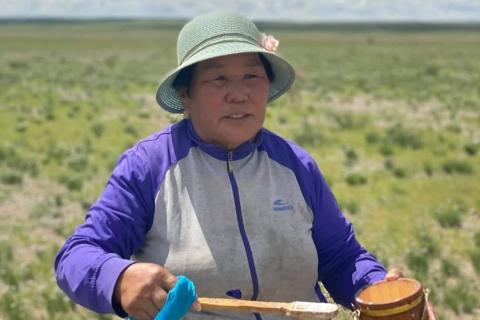TOWARDS CLIMATE JUSTICE: SECURING WOMEN’S LAND RIGHTS FOR A RESILIENT TOMORROW
A Contribution by Jes Weigelt, Moritz Hauer & Frederike Klümper (TMG Research)
Land Rights and Gender Responsive Climate Action Seminar
Mongolia needs fewer cows for better pastureland
Odgerel describes the changes he is making to tackle land degradation in his herding community since becoming a gender and land champion.
We now have the knowledge to control mining and save our livelihoods
P. Purevdolgor describes the impact of becoming a gender and land champion in her Mongolian herding community.
Climate-induced migration in Somalia
Building solutions for long-term sustainable livelihoods in urban contexts
Event Recap: Unlocking the potential of the Voluntary Guidelines on Land Tenure in food system transformation
Co-organized by FAO, UNCCD, TMG and the Land Portal, this side event specifically aimed to discuss how integrating the VGGT into land degradation neutrality (LDN) initiatives can re-ignite momentum to enhance tenure security and unlock multiple social, economic and environmental benefits.
Data Compatibility in Linking Land Degradation and Tenure Security
This data story investigates the challenges to align action on land degradation and tenure security based on the screening of available datasets in both domains.
Protesting herders to get government support to stop harmful mining operations
Like many countries, Mongolia has been hit hard by the Covid-19 pandemic and its government has been accelerating investments in the mining sector to help the economy. However, this has led to protests by local communities concerned about their land rights, and about their health. Among them is the community of Dalanjargalan, where the WOLTS project has been working with local champions who have been trained in land law, gender issues and participatory decision-making.
New Data Story: Communities, Carbon and the Climate Crisis
Indigenous Peoples and local communities have successfully stewarded biodiversity rich landscapes for generations, helping to conserve and protect forests and other critical ecosystems while pursuing their own self determined priorities and livelihood needs. However, in the absence of legally recognized rights to their lands and forests, forest communities face an increasing array of threats from growing local and global demand for land and resources.
Preserving rangelands for people and climate: Lessons from Mongolia
In Mongolia, the word “rangeland” is synonymous with “homeland.” It is a clue to the importance of rangelands in a country where a quarter of Mongolians are herders, and the wider livestock economy provides sustenance, income, and wealth to nearly half of the population. For many nomadic societies herding is at the core of their life. Around the world, rangelands support the livelihoods, social traditions, and resilience of 500 million people, primarily in low-income countries.





